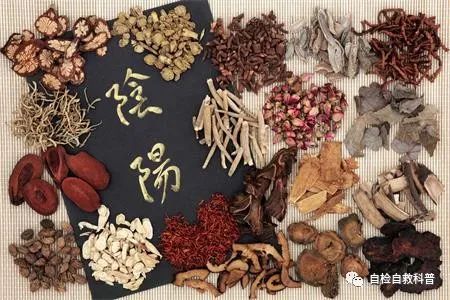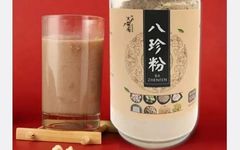1. Soft Speech, Often a Sign of Qi Deficiency
The sound of speech originates from the “Qi” of the body impacting the vocal cords. According to the theory in the Huangdi Neijing (Yellow Emperor’s Inner Canon), it is a type of “Zong Qi” that accumulates in the chest and emerges from the throat, which is derived from the respiratory Qi of the lungs and the refined essence of food transformed by the spleen and stomach. Therefore, a person with lung Qi deficiency or spleen Qi deficiency will exhibit weak voice and interrupted speech; conversely, those with sufficient lung and spleen Qi will have a strong and resonant voice. Generally, individuals with high-pitched voices tend to have robust physiques and well-developed muscles, indicating abundant spleen and stomach Qi. Those with Qi deficiency will also show signs of soft speech, so if a person often speaks softly, they are likely to have a Qi deficiency constitution.

Individuals with Qi deficiency often speak softly and experience shortness of breath. In summer, they may feel palpitations and breathlessness. This is also a manifestation of Qi deficiency. Furthermore, climbing stairs may leave them breathless, similar to asthma, due to the underlying weakness of lung Qi. The lungs are the organs responsible for gas exchange. The greater the lung capacity, the stronger the respiratory system, making it easier for the body to receive sufficient oxygen, thus promoting overall health. Those with Qi deficiency should practice deep breathing exercises in fresh air upon waking to increase lung capacity.
2. Prone to Fatigue
Qi is to the body what an engine is to a car; a fast car typically has a good engine and sufficient power. Similarly, a person with abundant vital energy (Yuan Qi) will exhibit vigorous vitality, abundant energy, quick thinking, and resistance to fatigue; whereas a person with insufficient vital energy will be the opposite, easily fatigued and weak.
3. Excessive Sweating
It is often said that “those with deficiency sweat more.” A person recovering from a serious illness may experience profuse sweating alongside shortness of breath and reluctance to speak, as the body mobilizes vital energy to combat pathogens and expel them, leading to the depletion of Qi. Likewise, a person with a generally weak Qi may sweat excessively with minimal activity, and in hot weather or during meals, they may sweat several times more than others.

Individuals with Qi deficiency appear to sweat excessively, sometimes even without movement. The sweat of those with Qi deficiency is pathological, not the profuse sweating seen in summer heat, but rather a sweat that is not warm, sometimes even cold. Even when not hot, their pores may open and sweat, leading to a sensation of cold as the sweat carries away heat. The root cause of these symptoms lies in the weakness of the defensive Qi (Wei Qi). Wei Qi exists between the skin and is responsible for protecting the body. When Wei Qi is weak, it is like soldiers guarding a city gate who are not strong enough to control the situation, thus failing to effectively ward off external pathogens. When Wei Qi is harmed by external pathogens, its mobility may diminish or cease, leading to stagnation at the surface of the body, resulting in a cold sensation, hence the cold sweat.
4. Frequent Dizziness
The blood in the body is Yin in nature and requires Qi to propel it. When a person has Qi deficiency, the circulation of blood is affected, which can manifest in various ways, such as blood stasis or bleeding, but the most common is insufficient blood supply to certain areas of the body due to Qi deficiency. Symptoms such as pale complexion and yellowish hands and feet indicate insufficient blood supply to the face and extremities, while dizziness results from inadequate blood supply to the head.
5. Emotional Instability
Some individuals are easily excited, sensitive, and fragile, which is not related to Qi stagnation but rather to Qi deficiency. Once Qi is deficient, the body’s resistance and tolerance decrease, leading to increased susceptibility to external pathogens and excessive reactions to various emotional stimuli, resulting in emotional instability and fluctuations. Those with Qi deficiency often exhibit a tendency to cry and laugh easily, sometimes displaying melancholy, excitement, or irritability.

6. Lack of Energy and Interest
Individuals with Qi deficiency prefer stillness over activity, which is not solely due to personality but may stem from insufficient vital energy. Traditional Chinese Medicine (TCM) holds that vital energy is the foundation of life, determining all aspects of existence. When vital energy is abundant, a person’s immunity is strong, and they are healthy; conversely, when vital energy is insufficient or damaged, the body cannot produce enough antibodies or immunity to combat disease. When vital energy is completely depleted, life ceases.
Those with Qi deficiency have insufficient energy to meet the demands of life activities. The body instinctively allocates energy to the most critical areas, minimizing less important activities such as speaking or running, leading to the characteristic of preferring stillness over activity in those with Qi deficiency.
7. Insufficient Vital Energy, Lack of Spirit
Individuals with insufficient vital energy exhibit weak vitality, and the functions of Qi in promoting, warming, defending, consolidating, and transforming are diminished, leading to various ailments and a perception of weakness and lack of spirit.

8. Swollen Tongue with Teeth Marks
The tongue appearance in individuals with Qi deficiency is easily recognizable, often showing a swollen tongue that fills the mouth, with teeth marks along the sides.
Common Symptoms of Qi Deficiency Constitution
The TCM classic Huangdi Neijing: Suwen records Qi deficiency constitution: “When the righteous Qi is stored within, evil cannot invade; where evil gathers, Qi must be deficient.” This means that individuals with strong righteous Qi have better resistance and are less susceptible to various pathogens, while those with Qi deficiency exhibit a range of symptoms, known as Qi deficiency constitution. A survey indicated that 12.71% of the Chinese population has a Qi deficiency constitution.
Individuals with Qi deficiency often experience shallow breathing, soft speech, relaxed muscles, weakness in the limbs, fatigue, lack of energy, weak bowel movements, organ prolapse, low blood pressure, dizziness, and in women, prolonged menstrual bleeding with pale menstrual blood.
1. Recurrent Colds
Some individuals may not show signs of Qi deficiency but frequently catch colds, whether due to seasonal changes, temperature drops, or flu outbreaks. In severe cases, they may have a continuous runny nose throughout the year, resembling allergic rhinitis, which is actually caused by Qi deficiency. Qi deficiency leads to insufficient surface Qi, reducing resistance to external pathogens, resulting in recurrent colds.

2. Organ Prolapse
Our organs are suspended in the thoracic and abdominal cavities, relying on a small amount of muscle fascia to anchor them to the cavity walls. Therefore, the strength of these muscles and fascia is crucial. However, individuals with Qi deficiency often have weak limb muscles, leading to insufficient strength to support the organs, making them prone to organ prolapse, such as gastric prolapse, renal prolapse, uterine prolapse, and anal prolapse. Since Qi governs ascension, Qi deficiency leads to an inability to lift the organs, resulting in prolapse. Therefore, if one already shows signs of Qi deficiency, such as shortness of breath or frequent colds, they should be cautious about engaging in vigorous activities after meals and should avoid jumping or running, opting for slow walking instead.
Case Sharing
I have a female patient with adenomyosis who experiences severe abdominal pain and anal prolapse after menstruation, requiring bed rest. While others typically experience menstrual pain before or during the first two days of menstruation, hers occurs after menstruation. Additionally, she frequently catches colds, and her anal prolapse symptoms indicate Qi deficiency. Therefore, I treated her with herbs to tonify the middle Qi, and after one dose, her pain significantly reduced. After continuing with the tonifying herbs for two months, her pain has not recurred.
3. Menorrhagia
Just as individuals with Qi deficiency may experience excessive sweating, Qi deficiency to a certain extent can also lead to the downward flow of blood, resulting in menorrhagia. This manifests as prolonged menstrual bleeding, lasting half a month or even a month, or even continuous bleeding throughout the year.
4. Low Blood Pressure
The characteristic of Qi deficiency in relation to blood pressure is low blood pressure. If a physical examination reveals low blood pressure, it is likely that one has a Qi deficiency constitution. If a patient experiences dizziness, fatigue, and lethargy due to low blood pressure, they can self-administer some Sheng Mai San (Ginseng and Ophiopogon Decoction) for adjustment.



Eight Medicinal Ingredients for Regulation ↑↑



